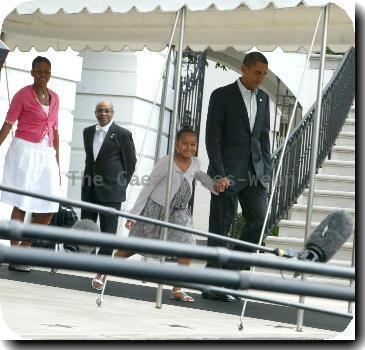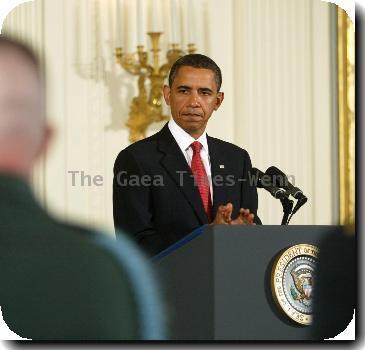Baltimore mayor faces trial for stealing gift cards; case could end her political career
By Ben Nuckols, APSaturday, November 7, 2009
Gift card scandal could sink Baltimore mayor
BALTIMORE — The accusations that Mayor Sheila Dixon used holiday gift cards for the needy during personal shopping sprees may sound like a minor embarrassment at worst, a small-time case of a politician enjoying the perks of power.
For Dixon, the stakes could not be higher.
Dixon, 55, will put her political future in the hands of a jury Monday, when her trial on theft charges begins. She’s accused of asking wealthy developer pals to donate gift cards worth thousands of dollars, saying they would be given to poor families — then using them to buy electronics at Best Buy, clothes at Old Navy and knickknacks at Target. If convicted, she would be tossed out of office.
She faces a separate trial later on perjury charges stemming from accusations that she didn’t report gifts from her ex-boyfriend, a real estate developer who received tax breaks from the city.
The allegations have bruised Dixon since they surfaced in January, leaving her isolated and politically vulnerable. President Barack Obama ignored her during his pre-inaugural whistle-stop tour, and her relationship with Gov. Martin O’Malley is lukewarm at best. Key city positions, including health commissioner, are vacant.
A plea deal is not an option. Under state law, she can’t remain in office if convicted of any felony or misdemeanor related to her official duties. The city council president would become mayor if Dixon is convicted.
Through her spokesman, Dixon declined an interview request. She took just a handful of questions about the trial during a recent meeting with reporters.
“I have no reason that I’m going to resign,” Dixon said, noting that she has received “tremendous support from citizens.”
However, many residents are disappointed and embarrassed.
“I don’t think if you’re the mayor, you’re setting a good example by going on trial for gift cards,” said Kevin Brown, 21, of Baltimore. “We’re supposed to look up to you.”
Dixon, a Democrat, became mayor in January 2007 after O’Malley was elected governor. Later that year, the Baltimore native easily won election to a four-year term, becoming the second African-American and the first woman elected to the position.
She was roundly praised during her first year in office for making shrewd hires and swiftly responding to crises. Her hand-picked police commissioner, Frederick H. Bealefeld III, has brought stability to the department, and homicides in this notoriously violent city hit a 20-year low last year.
The indictment has revived talk of Dixon’s perceived sense of entitlement. Her critics point to a long pattern of behavior that suggests a politician who believes certain rules don’t apply to her.
When she became City Council president in 1999, an ethics commission advised her to step down from her part-time state government job, saying it raised potential conflicts of interest. Dixon declined, keeping the second job for more than two years.
She also steered city business to a company that employed her sister and paid her campaign chairman, without a contract, to do computer work at City Hall.
Last December, when Baltimore’s top officials quietly approved pay raises for themselves in the midst of a budget crunch, Dixon was defiant, noting that she works long hours and has “a daughter in college.” She later relented and pledged to donate the $3,700 raise to charity, but the damage was done.
More questionable behavior has emerged in court documents. Ronald H. Lipscomb, the developer she once dated, told a grand jury that he gave her $4,000 after she went on a shopping spree during a trip to Chicago with him. Dixon apparently used the money to pay her American Express bill. Lipscomb is scheduled to testify against her.
“Even people who voted for her are disturbed by what’s come out,” said Matthew Crenson, a retired Johns Hopkins University political scientist.
Dixon, whose salary is $151,700, has assembled a high-priced team of seven lawyers. She has refused to say how she is paying her legal bills, although she has been quick to criticize the State Prosecutor’s Office, which investigates public corruption, for the cost of its lengthy probe.
Some legal experts believe Dixon, like many criminal defendants in Baltimore, could benefit from a jury pool that is skeptical of police and prosecutors. David Gray, an assistant professor at the University of Maryland School of Law, said prosecutors could have a difficult time meeting their burden of proof.
“The prosecutor must prove a specific intent to deny the benefit of those cards to the party who had lawful title in the cards,” Gray said. “It’s really not Mayor Dixon’s job, nor is it her attorneys’ job, to explain anything.”
While a conviction would end Dixon’s career, an acquittal would leave her plenty of time to shore up support before the next citywide election in 2011, said Donald F. Norris, professor and chairman of the public policy department at the University of Maryland, Baltimore County.
“Sometimes folks who engage in tawdry behavior get away with it and even get rewarded for it,” Norris said, “because they keep getting re-elected.”
Tags: Baltimore, Barack Obama, Celebrity, Celebrity Causes, Maryland, Municipal Governments, North America, Political Corruption, Political Issues, Political Scandals, Shopping, Theft, United States

